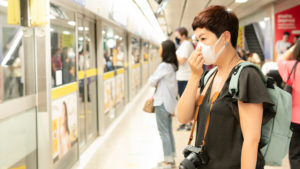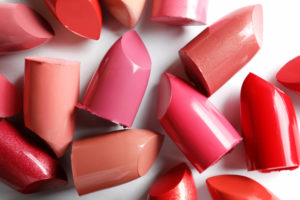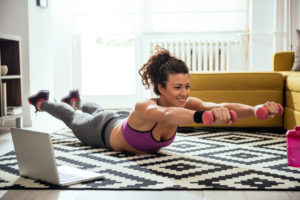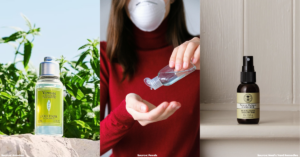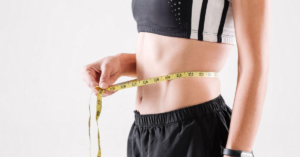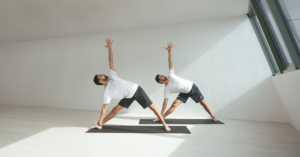Wellness Tips
How to Protect Yourself from Covid-19 at the Gym, Pool or Health Club
Should you still go to the gym in the middle of the Covid 19 outbreak? How high is the risk...
By: Dedet Panabi / March 16, 2020
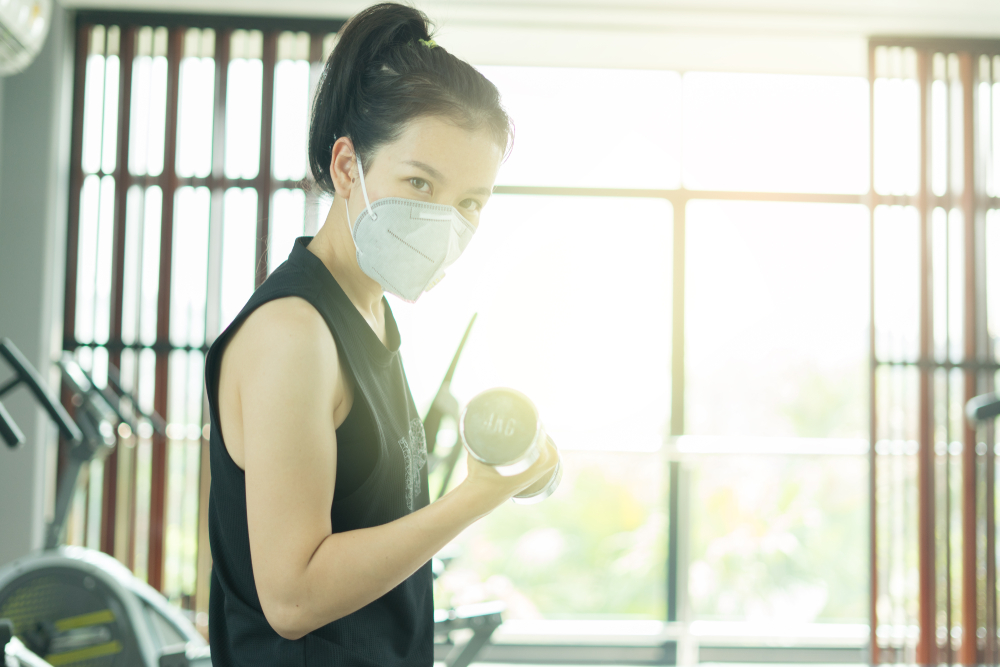
Should you still go to the gym in the middle of the Covid 19 outbreak? How high is the risk of transmission from yoga mats, exercise equipment or group classes? Should you cancel your tennis game or stop your morning laps at your condo pool? Here’s what you need about Corona virus safety and your daily exercise routine.
Contents
- What are the risks of corona virus at the gym?
- How do I know my gym is safe?
- What precautions should I take?
- Can sweat transmit the corona virus?
- I can’t find alcogel or alcohol — how can I disinfect gym equipment?
- Should I still attend my group class?
- Is it safe to swim at the pool?
- How safe are group sports?
What are the risks of corona virus at the gym?
Dr. David Thomas, the directory of John Hopkins University’s Division of Infectious Diseases, says going to the gym or health club is still safer than attending church services or going to the club. It all boils down to physical proximity. You won’t be shaking hands with people or standing close to each other. In fact, gyms may be “safer” than public transport or lining up at a bank.
However, the risk comes from touching shared equipment, like barbells, benches or yoga mats. Studies of other corona viruses say that they can survive on plastics, metal and glass for up to nine days. Even doorknobs and elevator buttons can harbour microorganisms.
The good news: corona viruses are actually pretty easy to kill. As long as your gym uses appropriate disinfection methods, you can still work out.
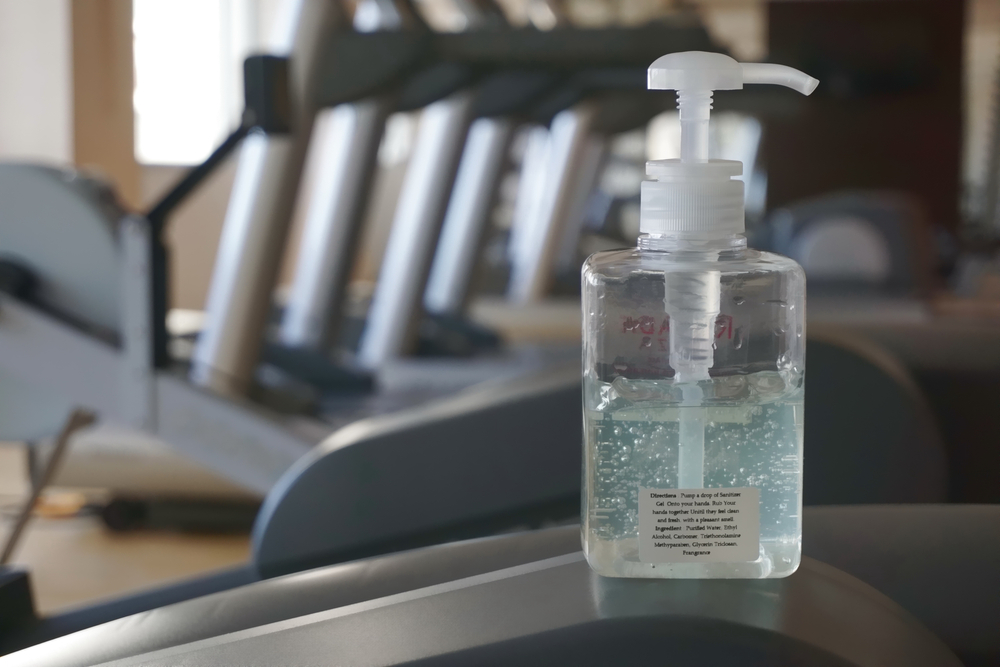
How do I know my gym is safe?
- Ask about their disinfection procedures. They should be using hospital-grade solution on all surfaces. Ideally, they should disinfect at least three times a day, especially if they have a lot of members.
- Ask about their employee/member policies. Do they check the temperatures or remind people to stay home if they show signs of a cold or flu? While this isn’t 100% guarantee — corona virus can be asymptomatic — it shows their level of vigilance.
- Are hand sanitizers readily available? The best gyms are responding to Corona virus by stepping up disinfection and placing hand sanitizers near workout equipment.
- What precautions do they take for group classes? Ask how they disinfect the masks, clean down the room, or screen attendees.
What precautions should I take?
- Avoid physical contact. This includes body adjustments during yoga class or one-on-one training sessions.
- Go during non-peak hours. The less people there are at the gym, the better.
- Bring your own stuff. In this situation, sharing isn’t caring. Bring your own exercise mat or hand weights, if possible. If not, bring your own alcohol or hand sanitizer.
- Watch where you put down your towel. Don’t drape it on the bench or the exercise machine — keep it on your shoulders, secure it to your shirt with a safety pin, or crimp it against your waist with a beltbag.
- Shower with anti-bacterial soap. Don’t rely on the free body soap in gyms. Bring an anti-bacterial body wash or soap, and use your own towel.
- Don’t touch your face. Keep your hands on the weights and away from your eyes, nose and mouth.
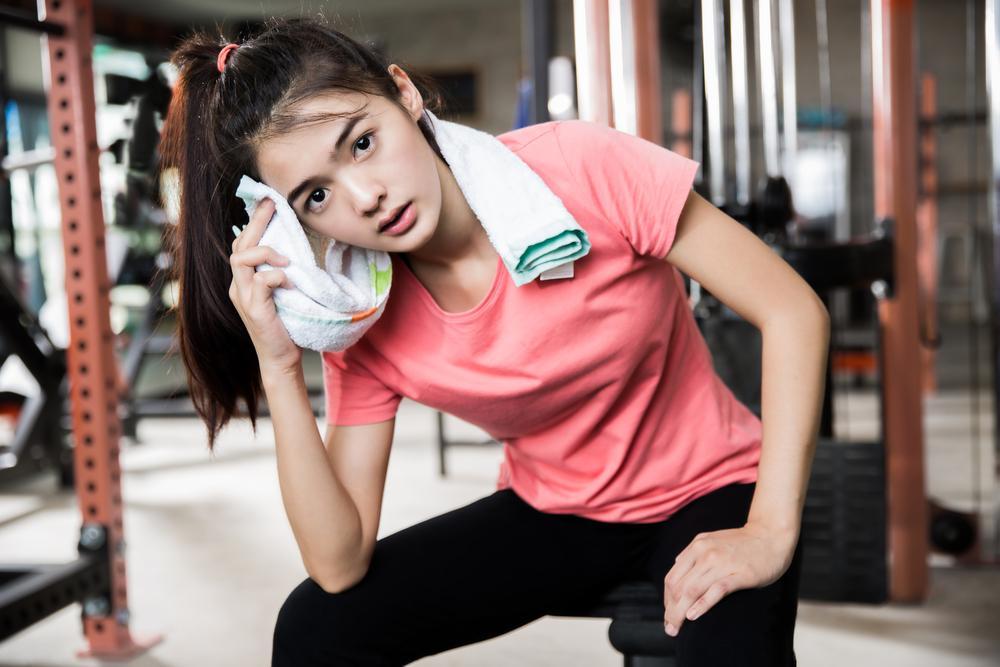
Can sweat transmit the corona virus?
No. “As a respiratory virus, sweat isn’t generally a transmission route, though contaminated skin and hands can be,” says Dr. Tara Smith, a professor of epidemiology at Kent State University. “Think more about how you might touch your nose and then touch equipment, or cough on a hand and touch equipment, than about the sweat itself.”
Dr. Smith says you don’t need to skip your exercise routine — it can actually boost your immunity. However, just take precautions. “I always wipe off equipment both before and after using it because you never know if the person ahead of you did a good job, but now is a good time to be extra careful about thorough cleaning.”
I can’t find alcogel or alcohol — how can I disinfect gym equipment?
With alcohol and hand sanitizers running out of stock in supermarkets and drugstores, it’s difficult for people to spray down every dumb bell or exercise machine you touch. The solution: make your own disinfectant.
To sanitize surfaces: mix 1 part bleach with 9 parts water.
To sanitize hands: take the surface disinfectant above, and further dilute to 1 part solution to 9 parts water.

Soap is still the best way to kill microorganisms. Don’t rely on hand wipes or alcogels to disinfect your hands. Until you can (literally) get your hands on a real bar of soap, avoid touching your face. And please wash hands properly. “I have never seen a lay person wash their hands properly,” says Gregory Poland, director of the Vaccine Research Group at the Mayo Clinic. “You put your fingertips, not your palms, in your eyes, nose or mouth. No one washes their fingertips.”
The Center of Disease Control recommends social distancing of 6 feet away from each other.
Should I still attend my group class?
If you live in a city with an outbreak, Dr. Poland suggests skipping the studio and continuing your workouts through an online class or app.
Outdoor exercise is also safe, he says, as long as you keep a distance from people. So running or biking everyday is safe… triathlons and spinning classes, not so much.
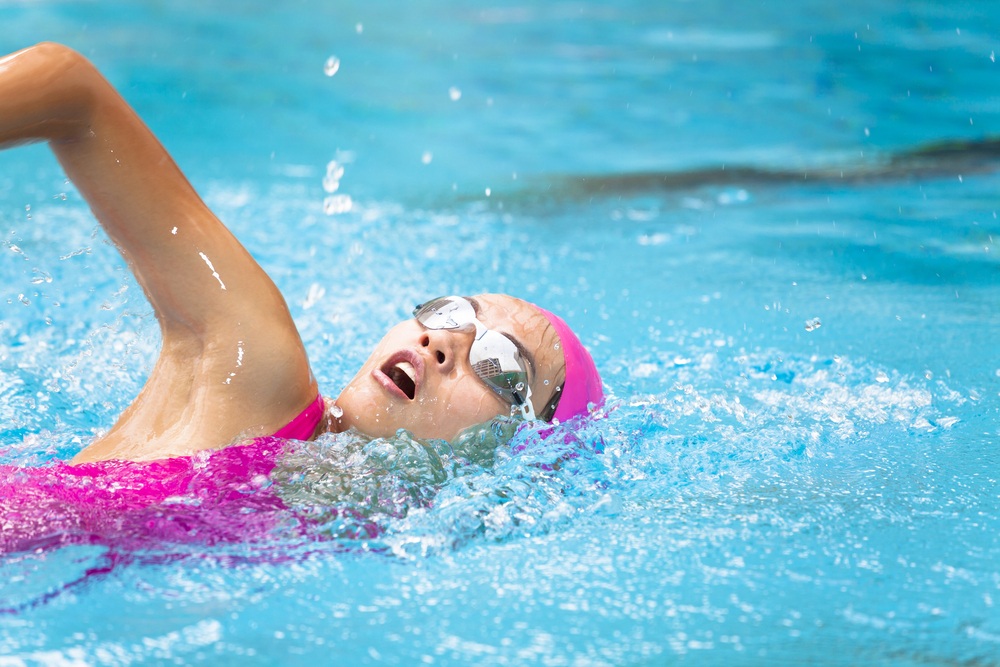
Is it safe to swim at the pool?
Dr. Leong Ho Nam, an infectious diseases specialist of Mount Elizabeth Novena Hospiutal, says that the chlorine in the pool will kill off viruses. The risk may come from interactions with others, and disinfect common areas like the poolside tables and deck chairs.
How safe are group sports?
Tennis and basketball intrinsically demand meeting up with people — and unlike dance or yoga, you can’t get the full workout from following a video at home.
In this scenario, it’s a case about choosing who you play with, and agreeing on group rules. It’s no more or no less dangerous than having an office meeting or dinner with friends, so just take sensible precautions.

